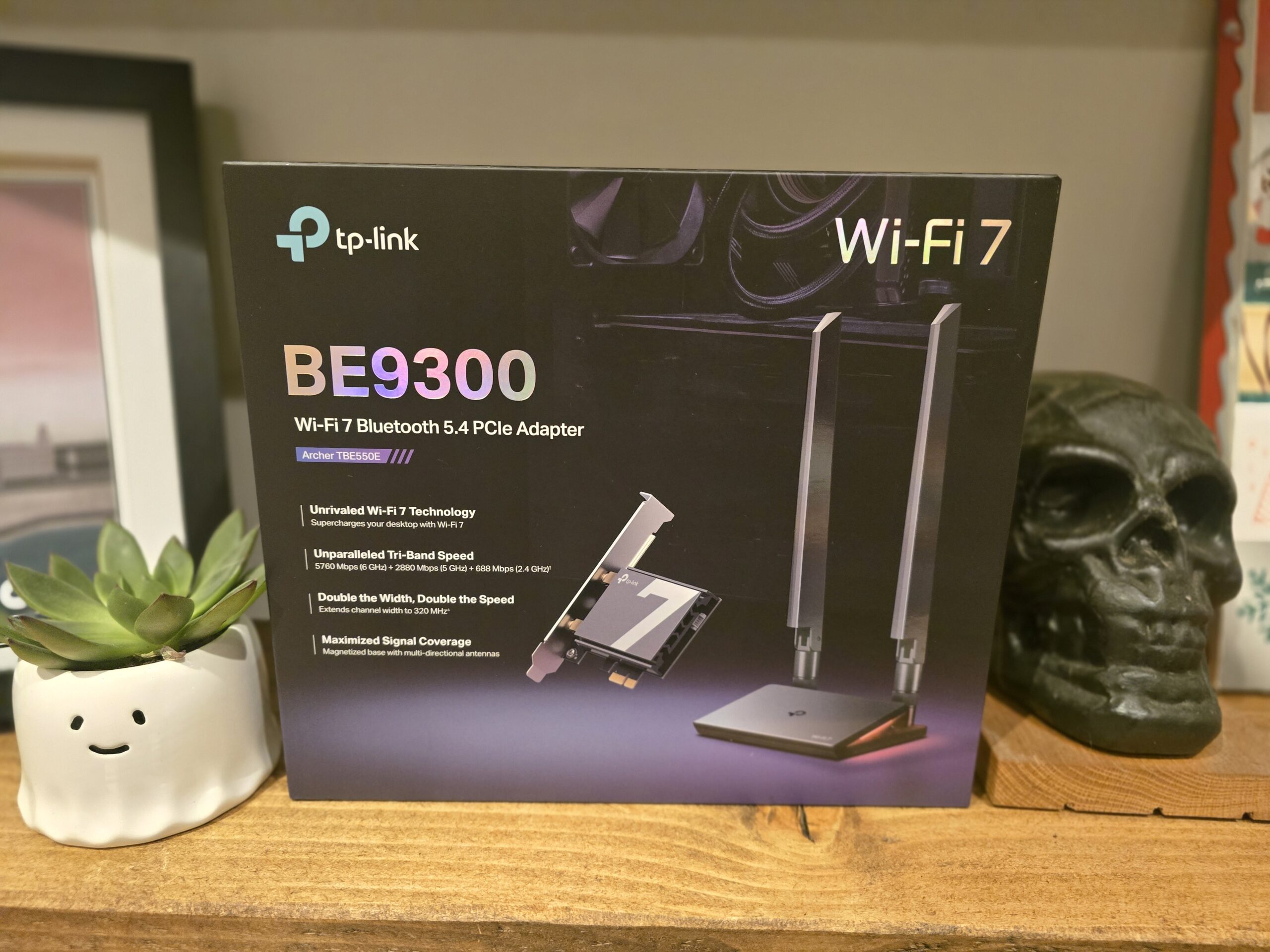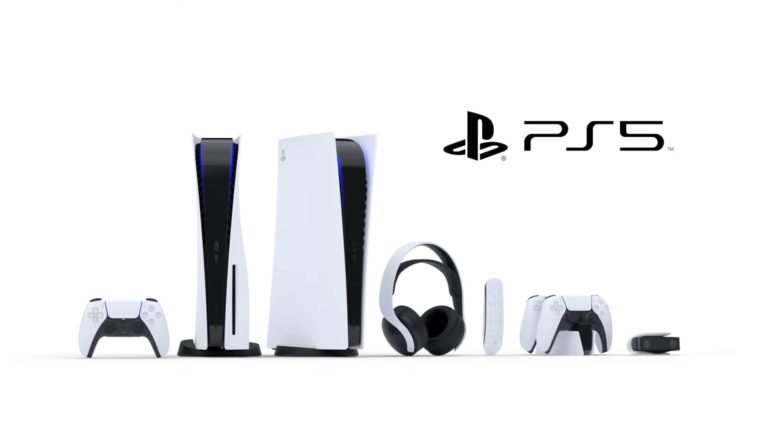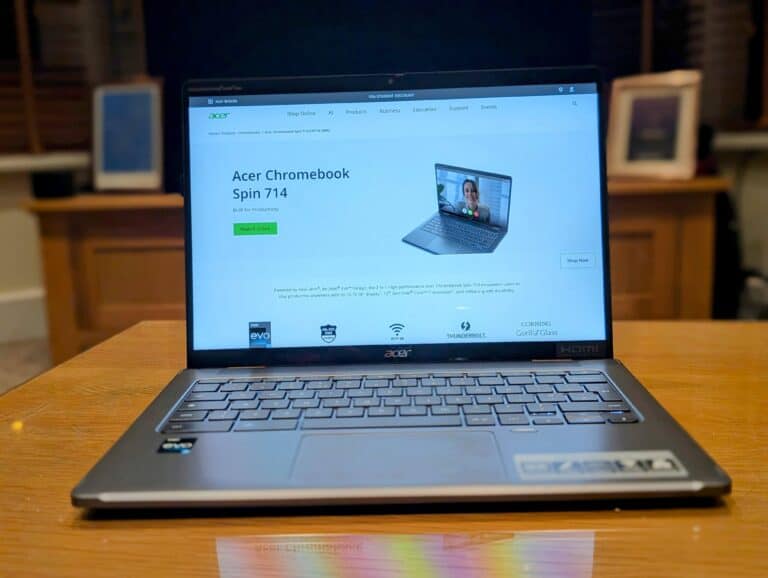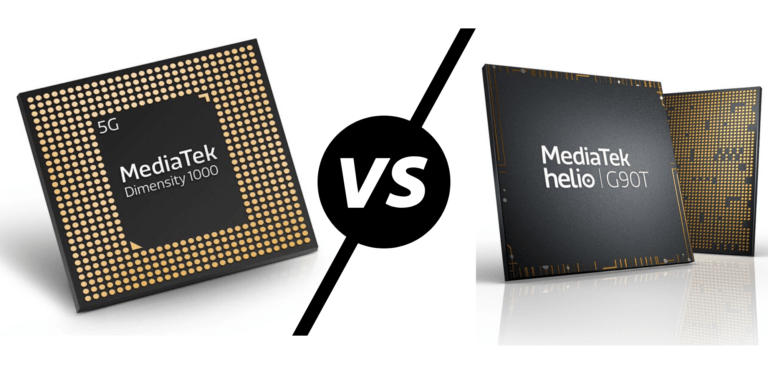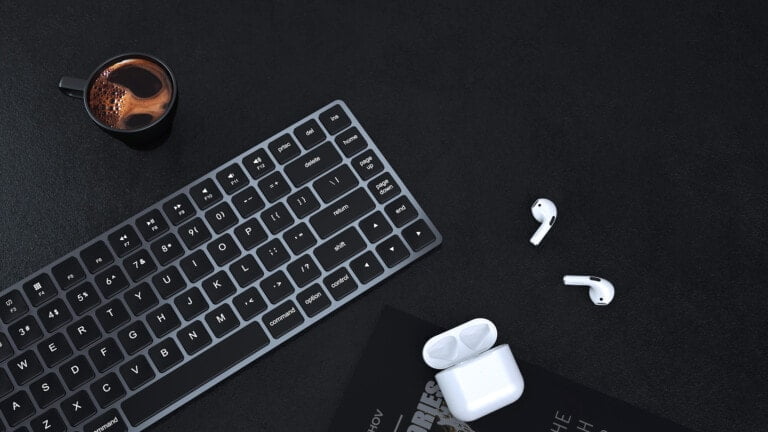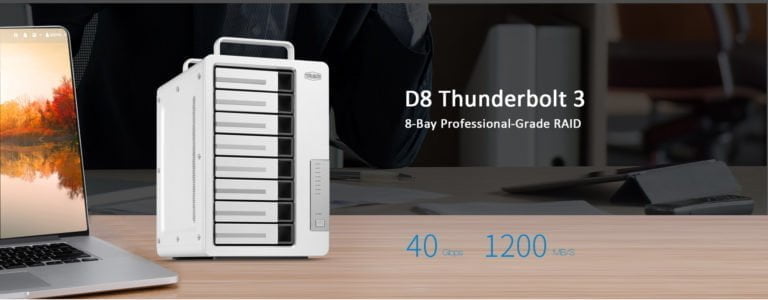Any links to online stores should be assumed to be affiliates. The company or PR agency provides all or most review samples. They have no control over my content, and I provide my honest opinion.
Most laptops and desktops use a removable WiFi module that you can upgrade as new WiFi standards come out. Or alternatively, for desktops, you can use a PCIe adaptor like this TP-Link Archer TBE550E.
Back in the days of WiFi 5, you had a choice of Intel, Realtek and Killer.
With WiFi 6 and WiFi 6E, the options seemed to be limited to basically just Intel. You could still get Killer but it was just rebranded Intel card. Realtek had WiFi 6 modules but I don’t think I ever use a product with one.
WiFi 7 has been quite different. Intel has the BE200, but it is only comparable on Intel systems (at least last time I checked), and this was the only chip available for a long time.
Realtek announced the RTL8922A and RTL8952A back at Computex 2023, but I am not aware of any products using it and can’t find it anywhere to buy.
For AMD, the first compatible WiFi 7 was the Qualcomm NCM865, which was first available on the MSI Herald-BE NCM865, but was almost impossible to buy by itself. This has now changed, and options are popping up on AliExpress for around £38.
Now, TP-Link has launched their WiFi 7 PCIe adaptor, which uses MediaTek MT7927.
| Preview | Product | Rating | Price | |
|---|---|---|---|---|

| TP-Link Archer TBE550E WiFi 7 Card BE9300 Mbps Wireless... |
£89.99 | Buy on Amazon |
Related Reviews
- Intel BE200 WiFi 7 Module Review vs Qualcomm NCM865
- MSI Herald-BE NCM865 Review
- Zyxel NWA130BE WiFi 7 Access Point Review
- Ubiquiti Unifi U7 Pro WiFi 7 Access Point Review
- EnGenius ECW536 WiFi 7 Access Point Review
Specification
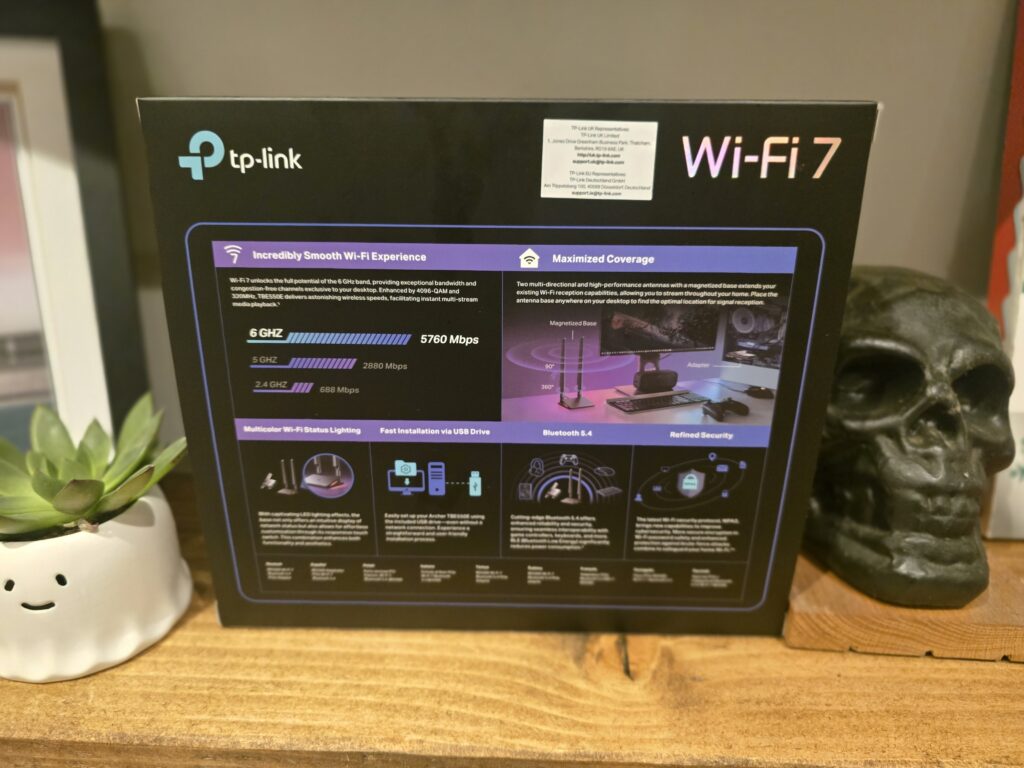
- Adapter Type: PCI Express Adapter
- Interface(s): PCI Express
- Transmission Method: Wireless
- Max Data Transfer Rate: 5764 Mbps
- Bands: Tri-Band
- Standards and Protocols: Bluetooth 5.4
IEEE 802.11be - Antenna: 2 x Multi-directional External Antennas with Magnetised Base
- Frequency: 2.4GHz: up to 688 Mbps
5GHz: up to 2880 Mbps
6GHz: up to 5760 Mbps - Wireless Modes: Infrastructure Mode
- Wireless Security: “WPA/WPA2/WPA3, WPA-PSK/WPA2-PSK”
- Dimensions: 95.2 x 120.8 x 21.5 mm
- Environment: Operating Temperature: 0°C~40°C (32°F ~104°F)
Storage Temperature: -40°C~70°C (-40°F~158°F)
Operating Humidity: 10%~90% non-condensing
Storage Humidity: 5%~90% non-condensing - Package Contents: Archer TBE550E
Magnetised Antenna Base with 1m Braided RF Cable
2x High-Performance Antennas
Low-Profile Bracket
Bluetooth Header Cable
Quick Installation Guide
Resource USB Drive - Warranty: 3 Years
Features
WiFi 7 Technology
Harness the full capabilities of the 6 GHz spectrum, offering twice the bandwidth of its predecessor.
Enhanced Signal Range
Dual multi-directional antennas with magnetic bases ensure optimal signal reception and distribution.
Cutting-Edge Bluetooth 5.4
Experience improved security and reliability compared to the previous Bluetooth 5.3 standard.
Fortified Security Measures
Incorporating the latest WPA3 protocol for robust protection of personal passwords.
User-Friendly Design
Streamlined USB Installation
Utilise the included USB drive for swift, network-independent setup of the Archer TBE550E adapter.
Intuitive Status Indicator
The base features vibrant LED lighting, providing a clear visual representation of network status, blending functionality with aesthetic appeal.
System Compatibility
Exclusively designed for Windows 11 64-bit operating systems.
Unboxing
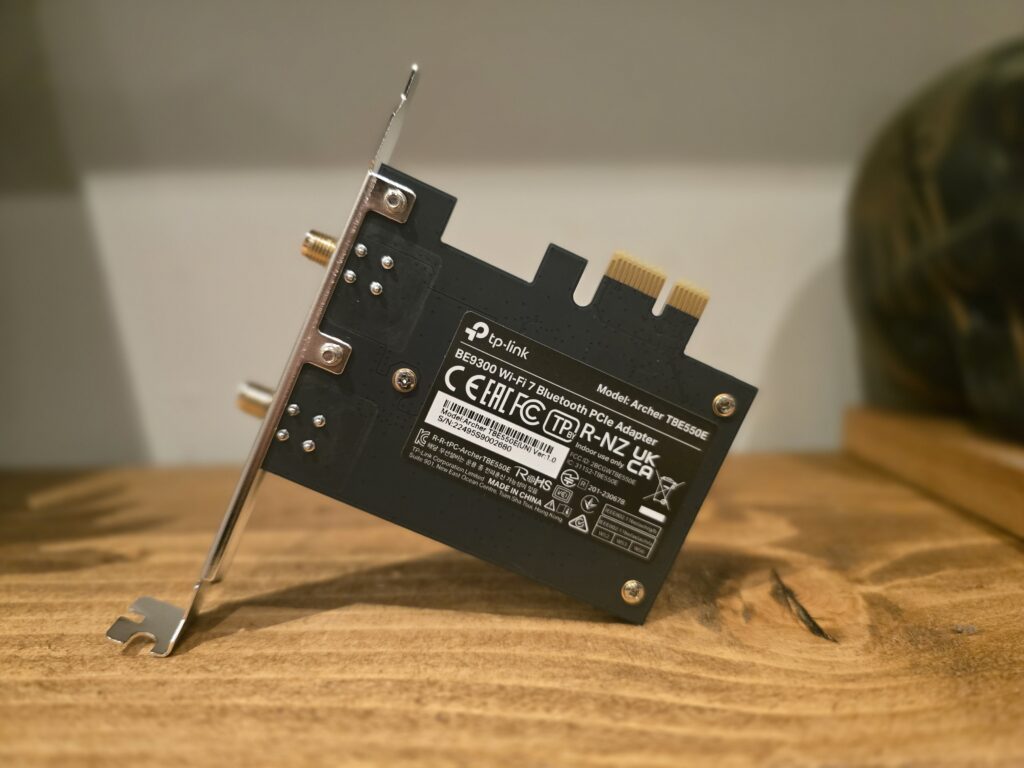
The TP-Link Archer TBE550E attempts to justify its high price tag with a nice package. The adaptor itself includes a decent-quality heat spreader, and the magnetised base is much better quality than the plastic base of the MSI PCIe adaptor. You also get a dual antenna vs the single antenna of the MSI which can help improve performance.
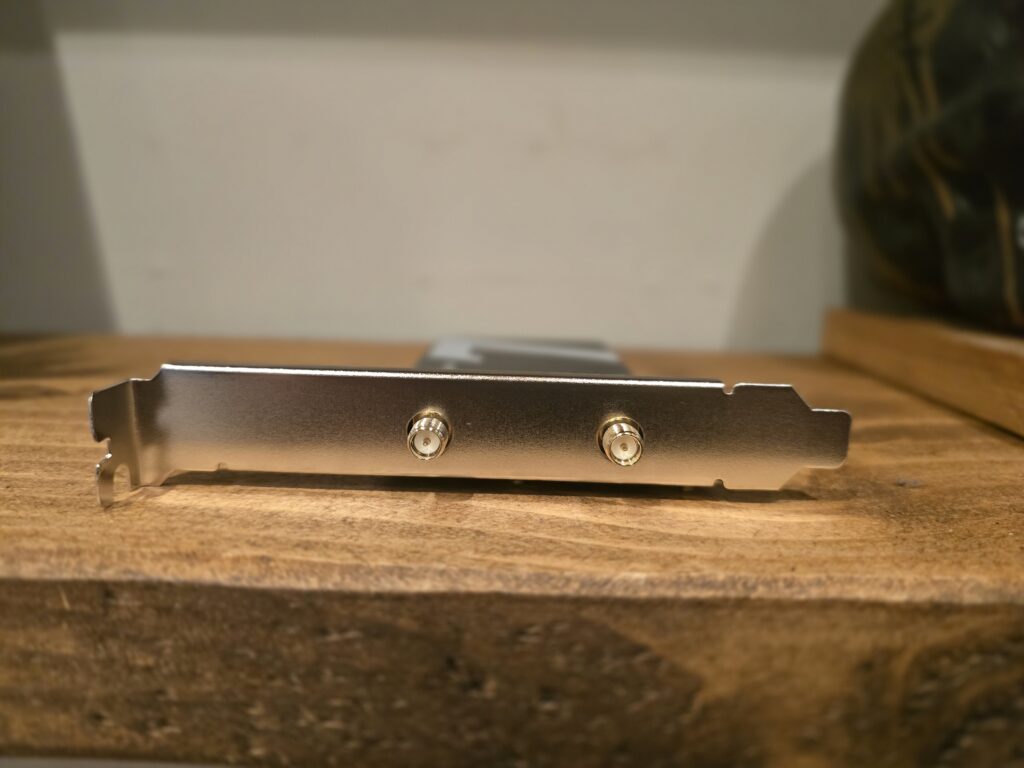
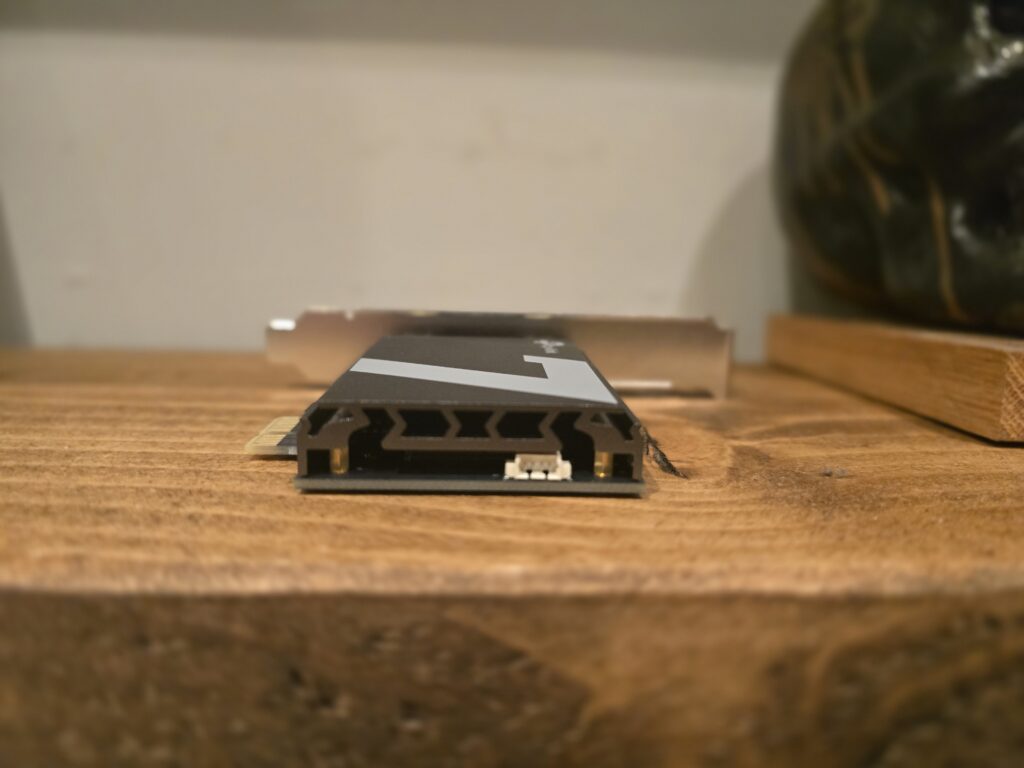
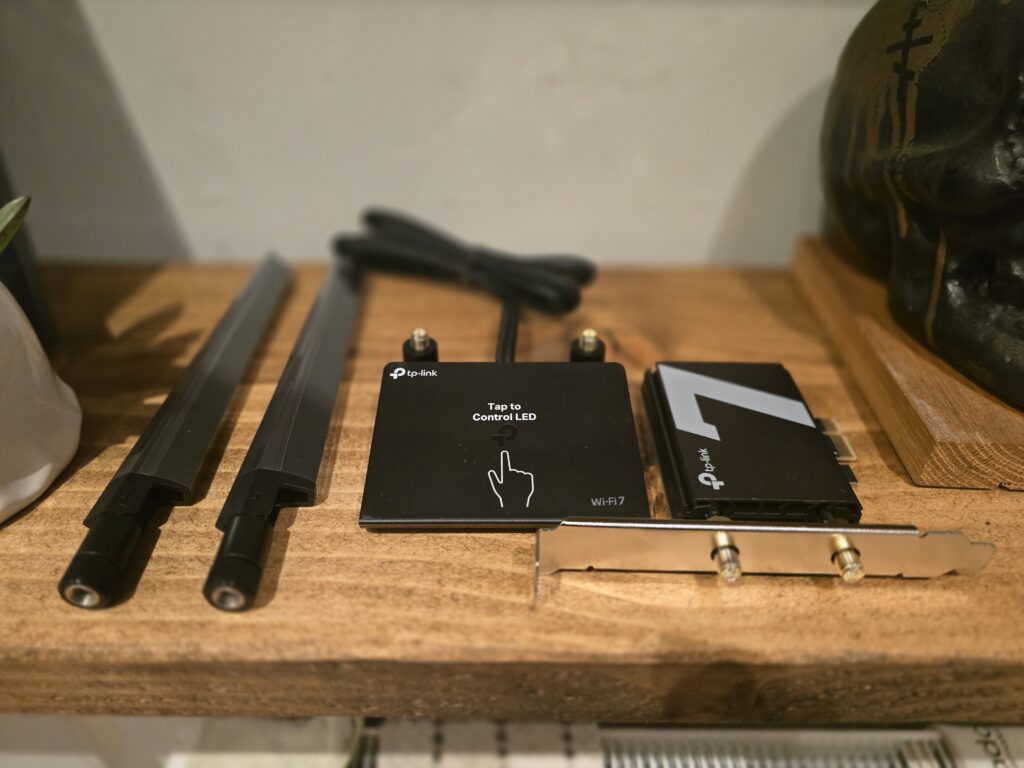
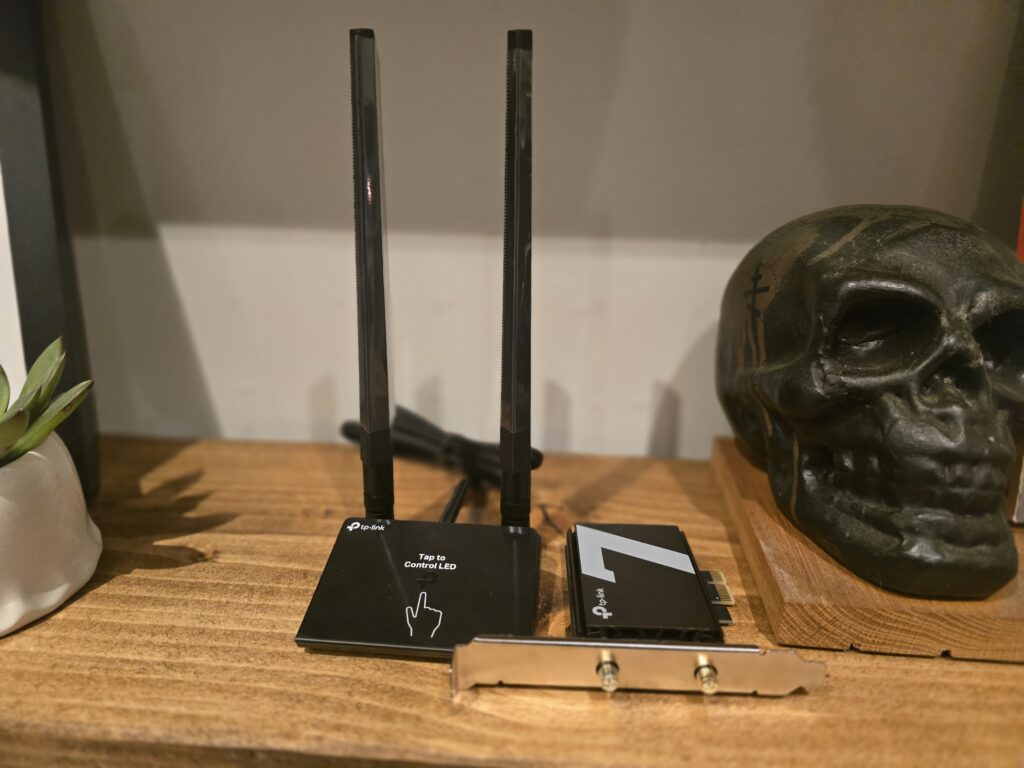
Installation
Installation is straightforward, you just plug the PCIe card into a spare PCIe slot, attach the power cable to a spare USB header, attach the antennas and then install the drivers on the USB drive.
The big caveat here is that the included drivers are only for Windows 11. Windows 10 doesn’t officially support WiFi 7, and there are no Linux or Mac drivers included.
Performance
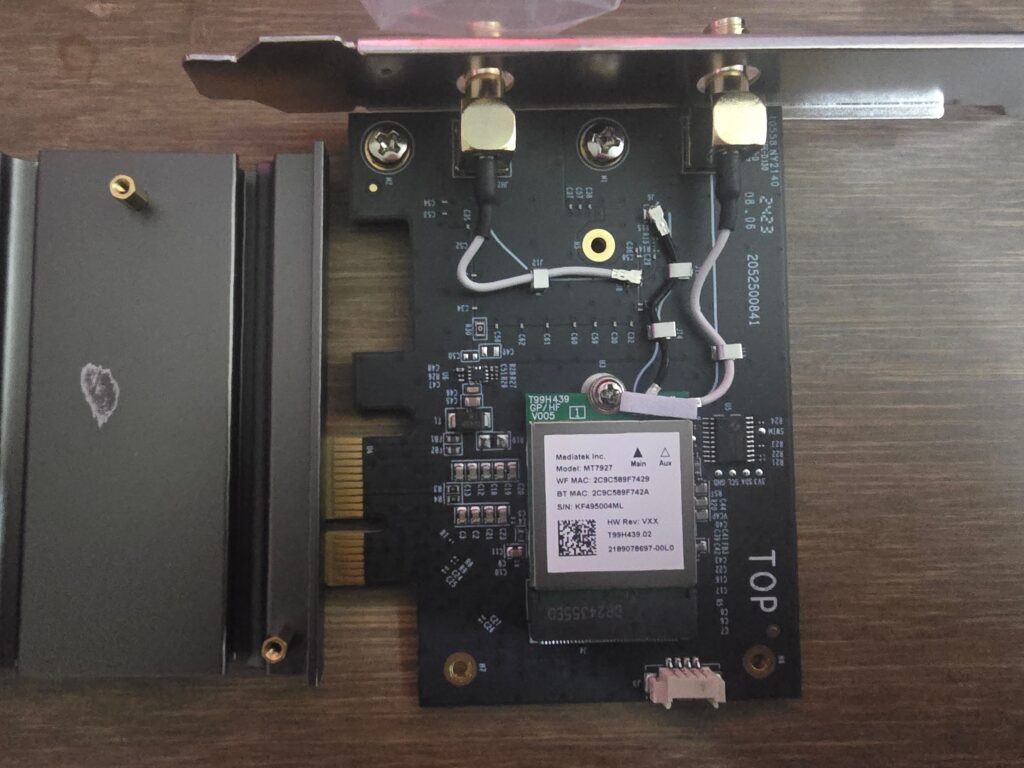
Performance has been impressive. First of all, when I originally connected to my 6GHz band, Windows reported a connection speed of 4000Mbps, which I haven’t seen on other WiFi 7 devices before. For 5GHz, a connection of 2882 Mbps was reported.
Initial tests with the Unifi U7 Pro showed a throughput of 2300Mbps.
Switching to the Engenius ECW536, I was able to achieve 2440Mbps, and this was likely limited by my TerraMaster NAS, which only has 2.5GbE.
I later removed the WiFi module and installed it in my Matebook 14. The performance was similar to the Qualcomm NCM865, however, the main difference seemed to be reliability. With the Qualcomm NCM865, there would be random issues connecting to the WiFi when first booting up, and this would often require a reboot. I have had no problems with the MediaTek MT7927 chipset at all.
Price and Alternative Options
| Preview | Product | Rating | Price | |
|---|---|---|---|---|

| TP-Link Archer TBE550E WiFi 7 Card BE9300 Mbps Wireless... |
£89.99 | Buy on Amazon |
The TP-Link Archer TBE550E is a premium product with an RRP of £100. At the time of writing, it was just £85.
They also have the TBE552E at the same price and this omits the magnetized base with antenna and has the antennas connect directly to the antenna ports on the adaptor.
The MSI Herald-BE NCM865 is now available to buy in the UK at £76, but I bought it from Amazon.com for just $50.
The Qualcomm NCM865 is available to buy from Amazon.com for $50.
The Intel BE200, which will only work on Intel systems, is the cheapest option. You can get the module for under £40, and plenty of random brands are selling PCIe adaptors for £40-70.
Overall
I resent paying close to £100 for a WiFi adaptor but that’s not unusual for branded products like this. Even WiFi 6 adaptors are disproportionally priced when bought from the likes of TP-Link and Asus.
WiFi 7 routers and mesh systems still command a premium price, so paying a premium price for an adaptor is perhaps expected.
Ignoring the price, the TP-Link Archer TBE550E has been excellent. While it isn’t plug-and-play, once I installed the adaptors, it worked perfectly.
The performance seems to be superior to the TP-Link Archer TBE550E with the Qualcomm NCM865 and if you are on an AMD based system, these are your only two options.
I found the MediaTek MT7927 adaptor was also more stable on my laptop, with performance on par with that of the MediaTek MT7927.
While the TP-Link Archer TBE550E currently costs about £10 more than the MSI Herald-BE NCM865, I prefer the TP-Link. The overall design and build quality are superior, with a decent heatsink and a better-quality base for the antennas.
Overall, if you have invested good money into WiFi 7 for your home and have an AMD desktops, then I’d say the TP-Link Archer TBE550E is the best option to upgrade to WiFi 7.
TP-Link Archer TBE550E Wi-Fi 7 Adapter Review
Summary
It may be expensive, but I have found the TP-Link Archer TBE550E to be the best PCIe card for WiFi 7 on an AMD system.
Overall
90%-
Overall - 90%90%
Pros
- Easy to install, drivers provided on a USB stick
- Superb WiFi throughout
- Reliable performance – no drop outs
Cons
- Expensive
- Only has Windows 11 Drivers
I am James, a UK-based tech enthusiast and the Editor and Owner of Mighty Gadget, which I’ve proudly run since 2007. Passionate about all things technology, my expertise spans from computers and networking to mobile, wearables, and smart home devices.
As a fitness fanatic who loves running and cycling, I also have a keen interest in fitness-related technology, and I take every opportunity to cover this niche on my blog. My diverse interests allow me to bring a unique perspective to tech blogging, merging lifestyle, fitness, and the latest tech trends.
In my academic pursuits, I earned a BSc in Information Systems Design from UCLAN, before advancing my learning with a Master’s Degree in Computing. This advanced study also included Cisco CCNA accreditation, further demonstrating my commitment to understanding and staying ahead of the technology curve.
I’m proud to share that Vuelio has consistently ranked Mighty Gadget as one of the top technology blogs in the UK. With my dedication to technology and drive to share my insights, I aim to continue providing my readers with engaging and informative content.
Last update on 2025-07-13 / Affiliate links / Images from Amazon Product Advertising API

